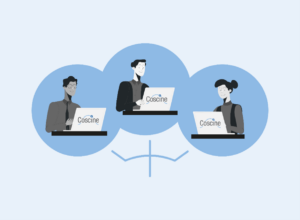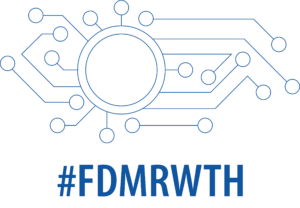Since the last update in July of this year, a lot has happened in Coscine. To keep you up to date, this blog post summarizes the latest developments around the platform for research data management and looks back on the past months.
RDS-WORM Resources
The continuous optimizations at Coscine did not stop in the second half of the year. For example, as of July 2022, RWTH members have the option to submit storage requests for RDS-WORM (write once, read many) via the JARDS platform. The RDS-WORM resources enable the storage of research data with high protection requirements on the Research Data Storage (RDS) and prevent subsequent manipulation of the data. For this reason, this type of resource is particularly well suited for raw data that must not be modified. RDS WORM resources can be used via S3 protocol with various tools. However, please note that when using this resource type, the storage space once allocated cannot be reused. More information about the WORM resource type can be found in the documentation.
Updated Quota Management
On the quota management page, new notes on the respective field functions were added in August. Additionally, at the API level, the unit of storage has been updated. Users who use the Project and Resource APIs will find all updates on the respective Swagger pages, which can be found via the documentation.
New documentation
Since Coscine is developed as an open source platform, the documentation should also be made available via open software. Therefore, in September, the generic documentation was moved to mkdocs (open source license BDS) and can now be found at https://docs.coscine.de/en. On IT Center Help the Coscine documentation will still be available. However, from now on it only refers to RWTH-specific concerns.
Beta Application Profile Generator
A big focus in Coscine is to ensure that your research data is stored with validated and standards (ontologies) based metadata. To facilitate this process, Coscine is part of the AIMS project, in which the Application Profile Generator entered beta in October. In this application, you can create your own application profiles, which include, for example, domain-specific requirements for your metadata. A new functionality within the beta version is the inheritance possibility. This means that nothing stands in the way of modular and extensible application profiles. Try out the new version by clicking on the associated button when creating a resource.
Learn more
You don’t want to miss any news about Coscine? Then subscribe to our mailing list and visit us on our website.
Do you have any questions or feedback? Then write a message to the IT-ServiceDesk. We are looking forward to your message!
____
Responsible for the content of this article is Arlinda Ujkani.






Leave a Reply
You must be logged in to post a comment.